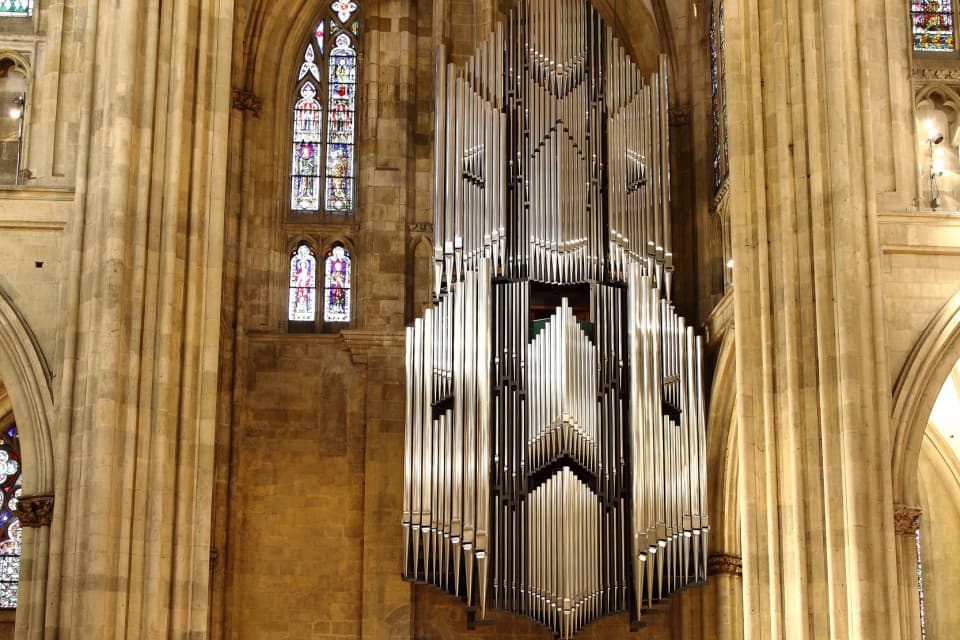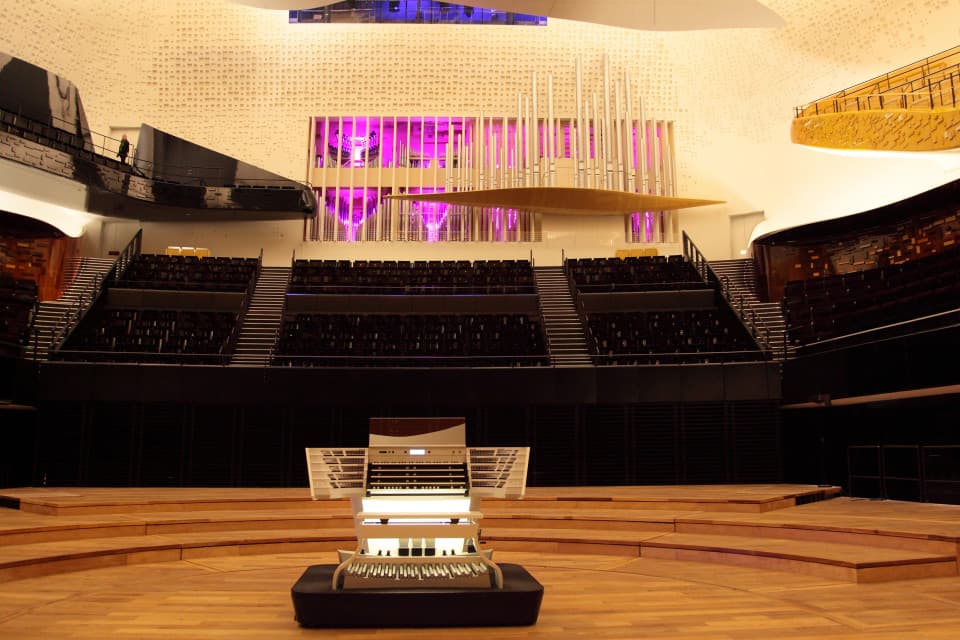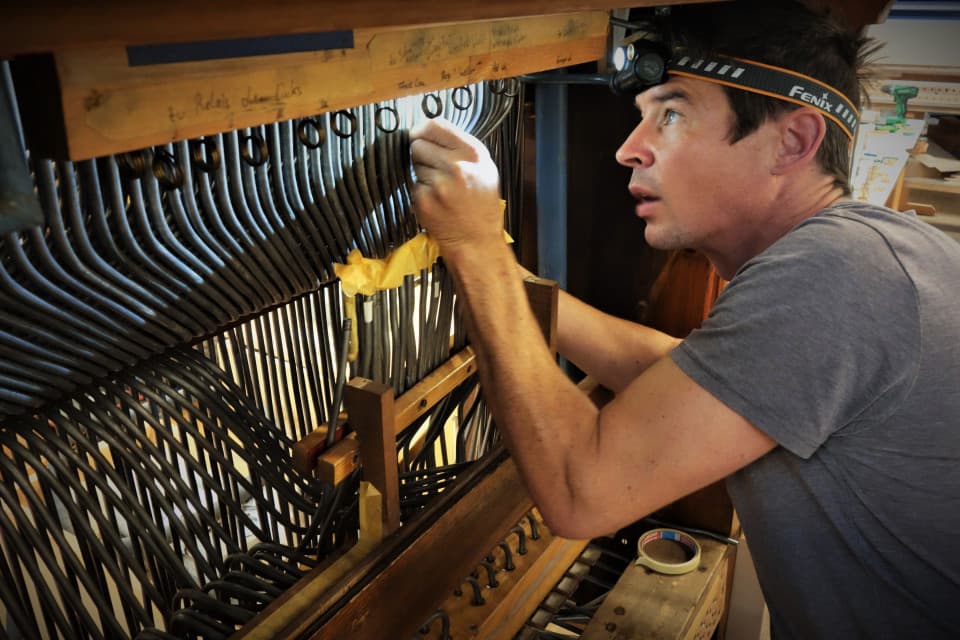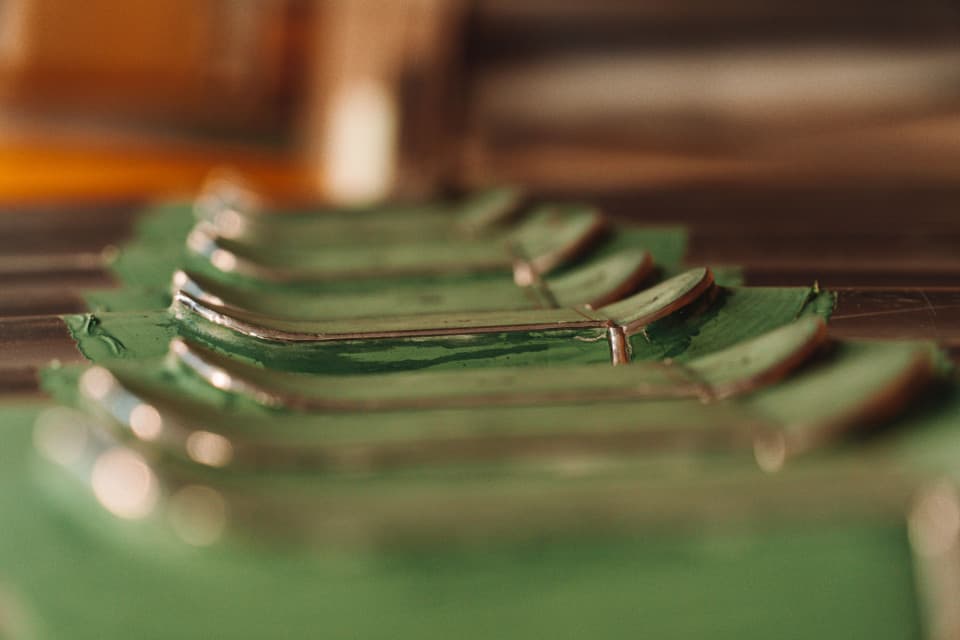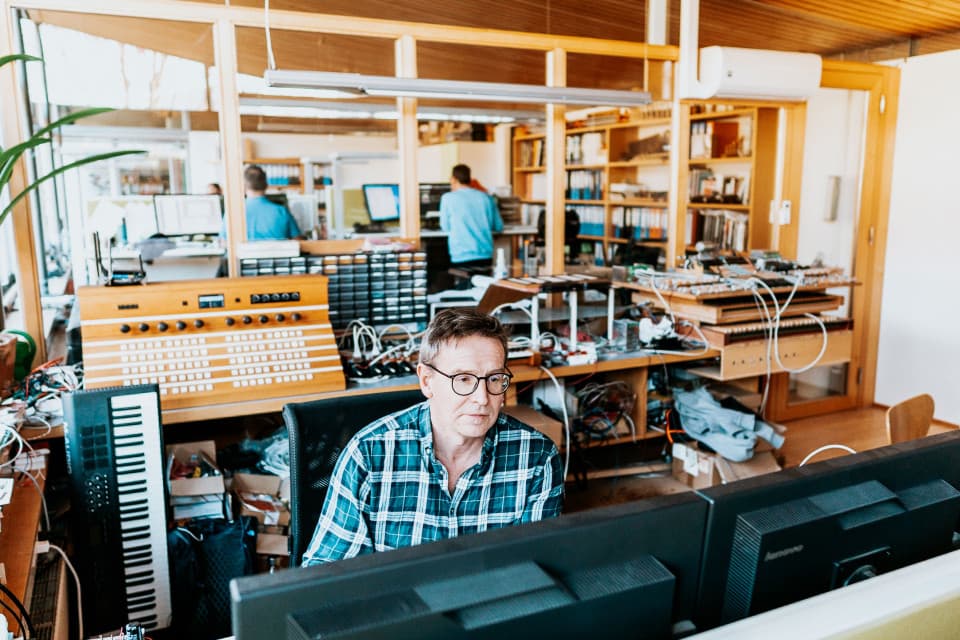Range
Every Rieger organ is a unique instrument. The organs that Rieger creates are as diverse as the venues for which they are intended and the purposes for which they are designed. Our new instruments can be modelled on historical examples and uncompromisingly made by using old technology. In the same way, a new Rieger organ can also be equipped with state-of-the-art technologies, based on the latest developments in organ building.
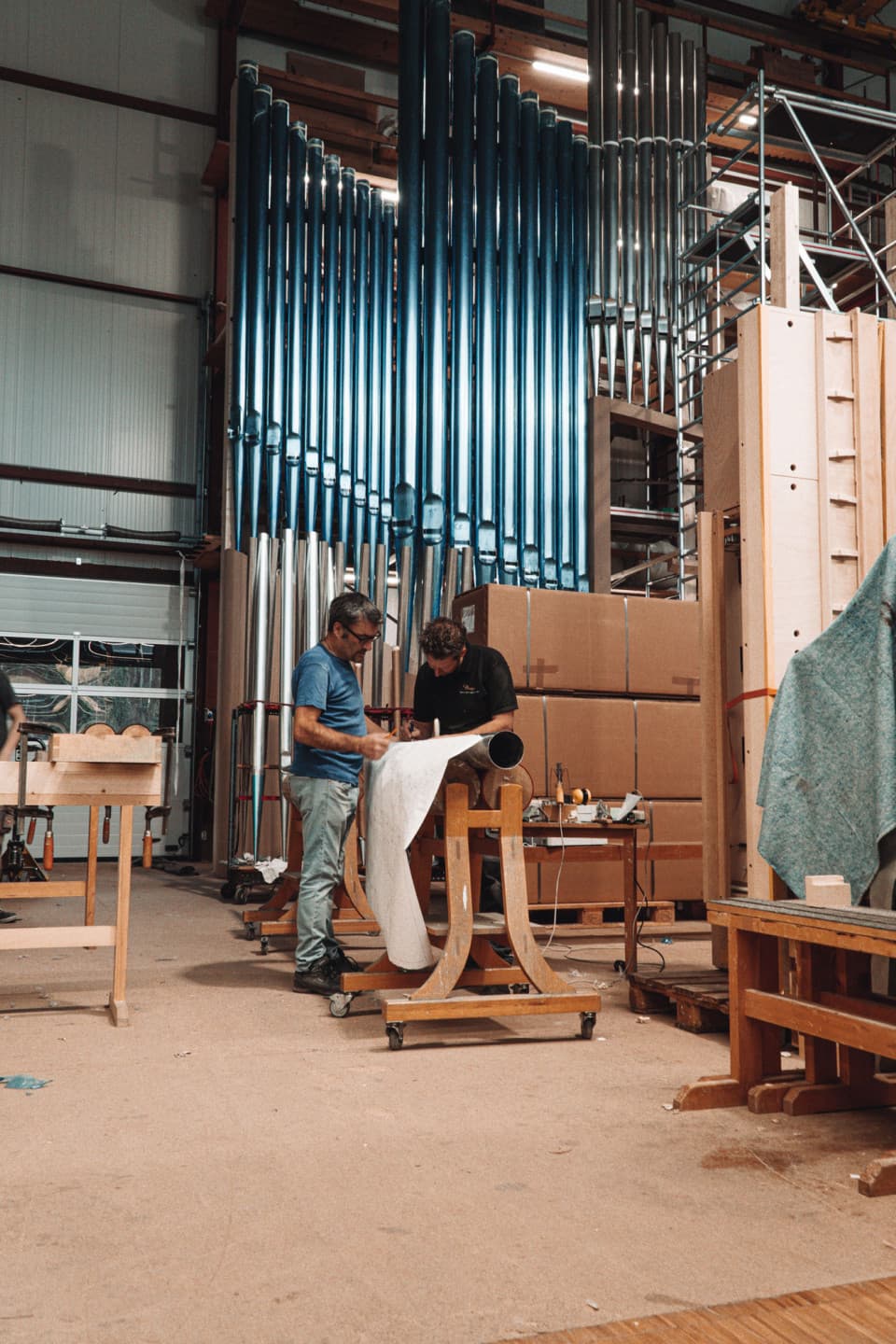
Perfection
Our enormous range makes it clear that we do not follow any ideology in organ building. The only thing that counts for us is perfection in production and an artistically coherent concept that results in well-developed sound.
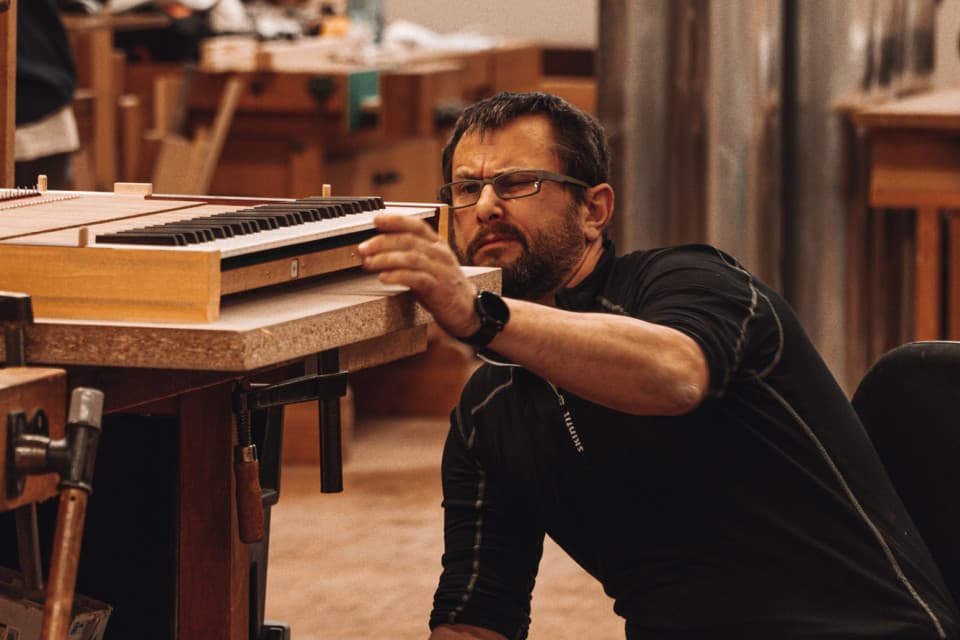
We shape the sound of tomorrow today.
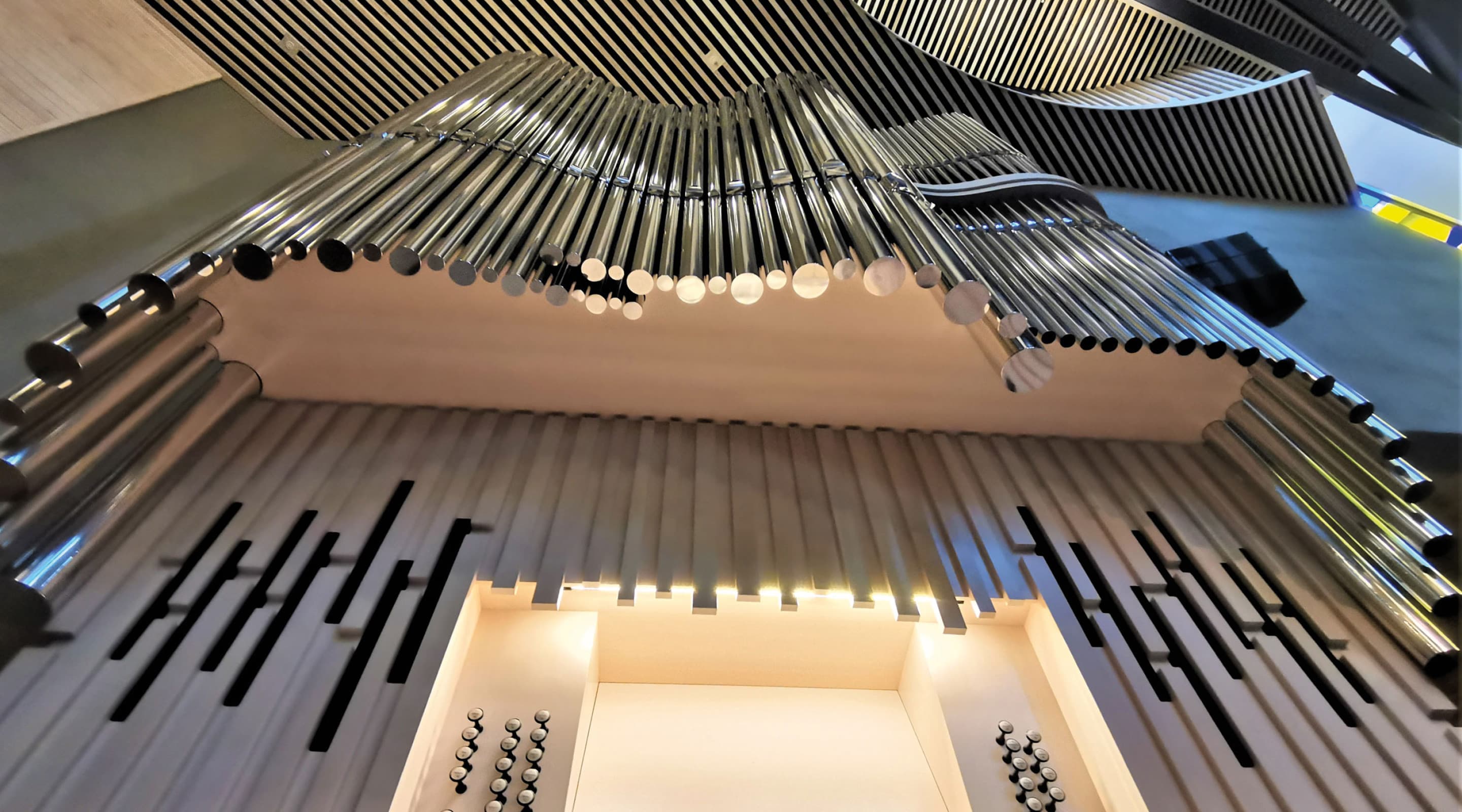
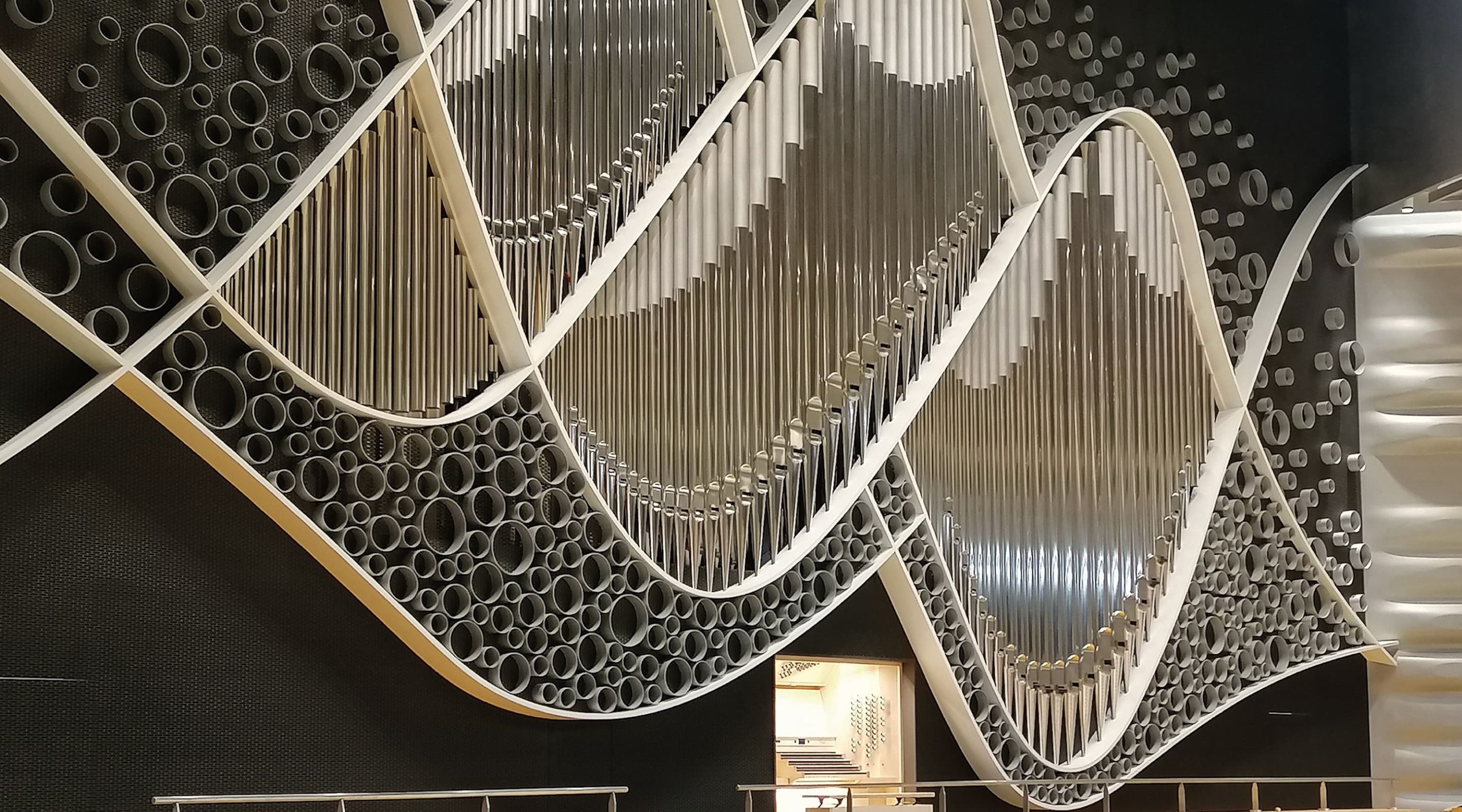
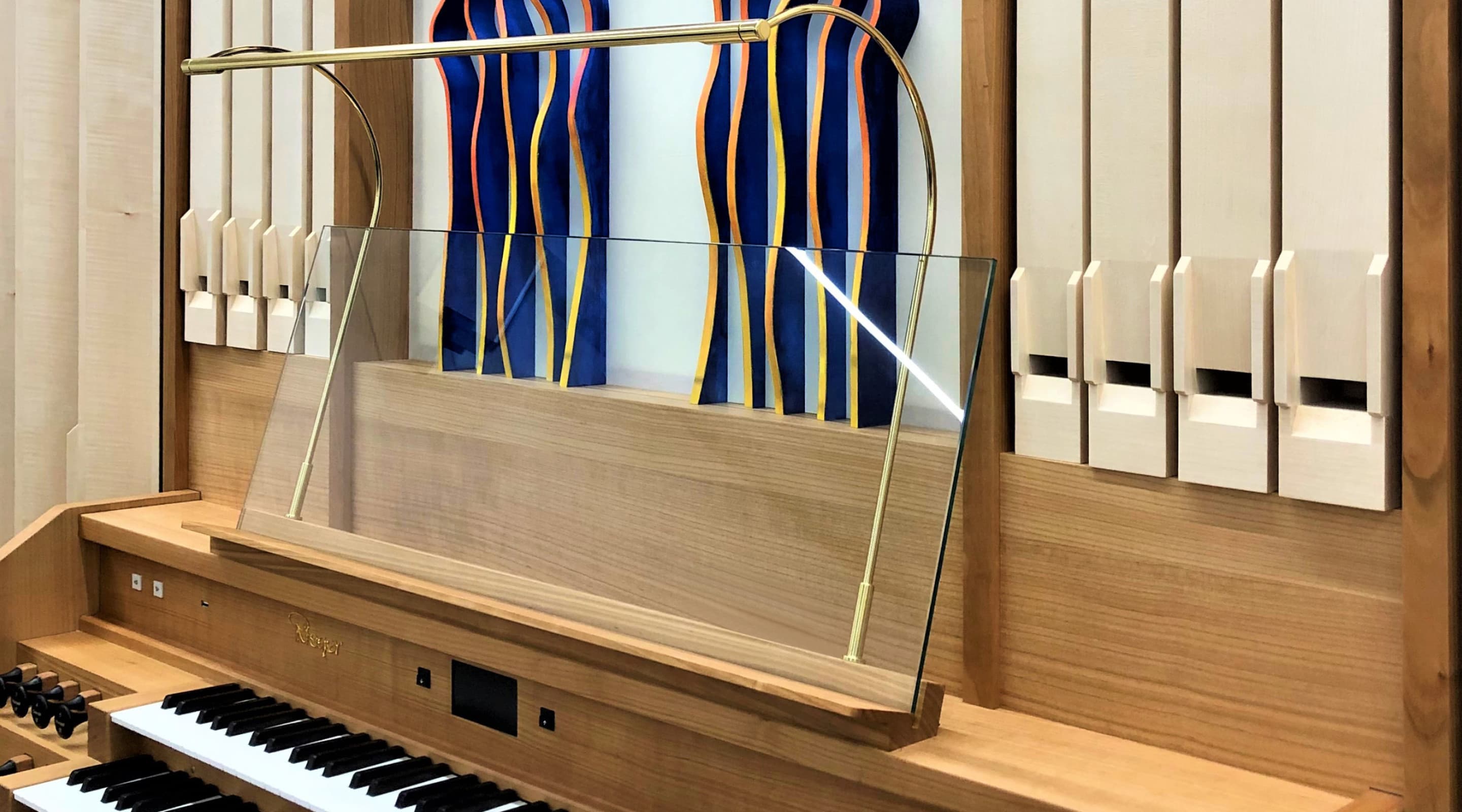
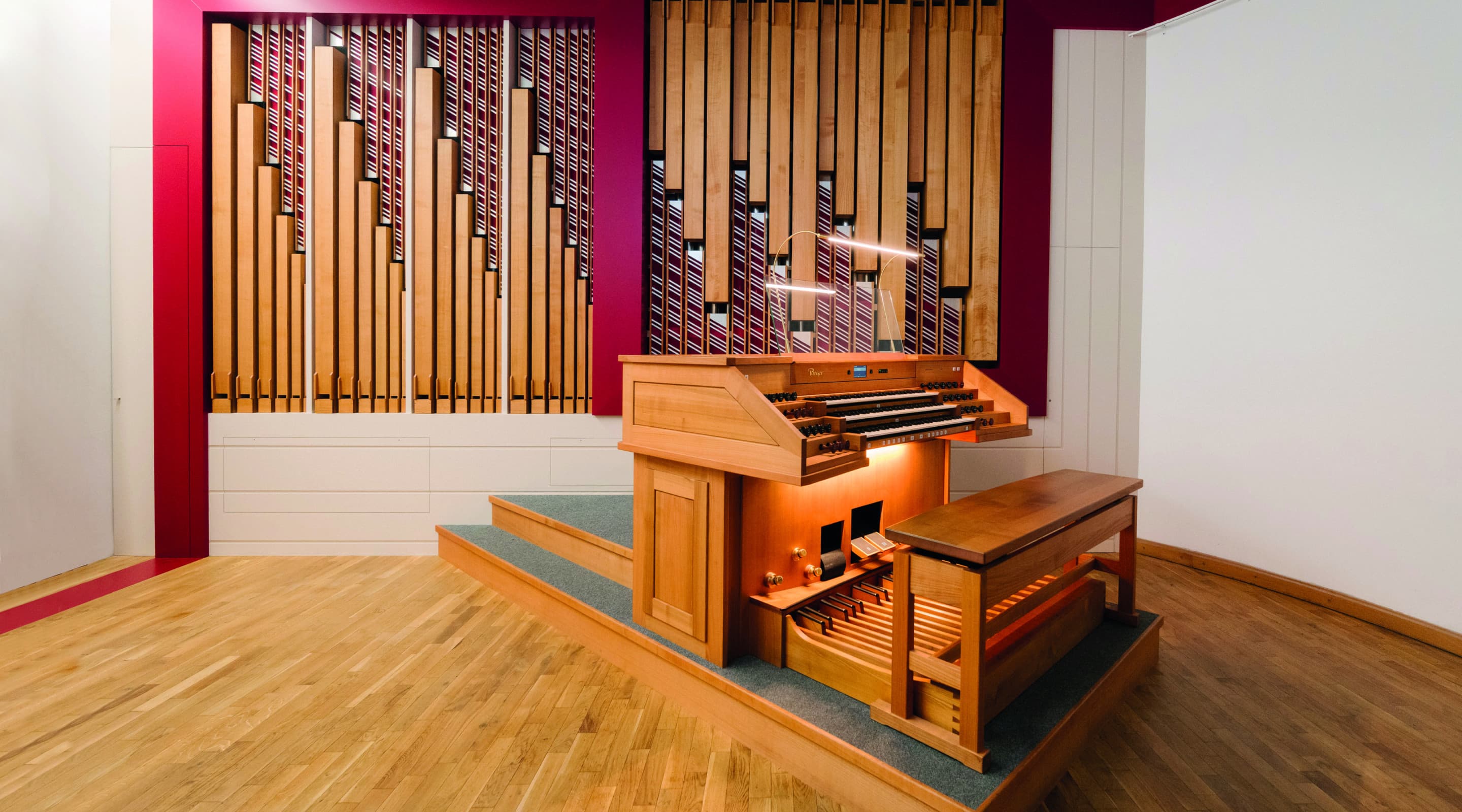
Church organs
Many churches around the world nowadays have Rieger organs. We design church organs primarily to suit the respective venues and orient ourselves artistically and technically to accommodate very diverse liturgical forms.
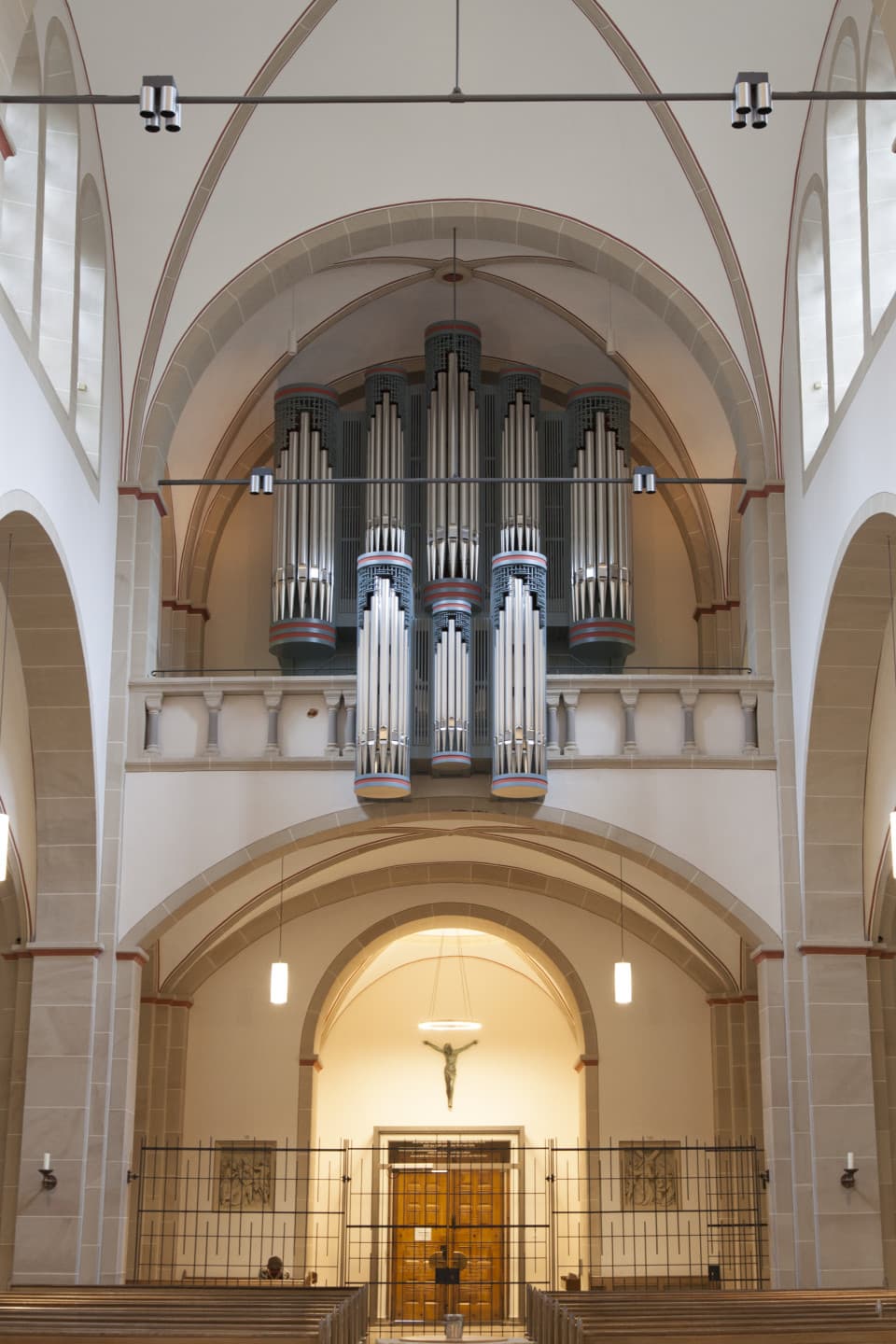
(CHN) Fuzhou (left); (D) Gütersloh (above)
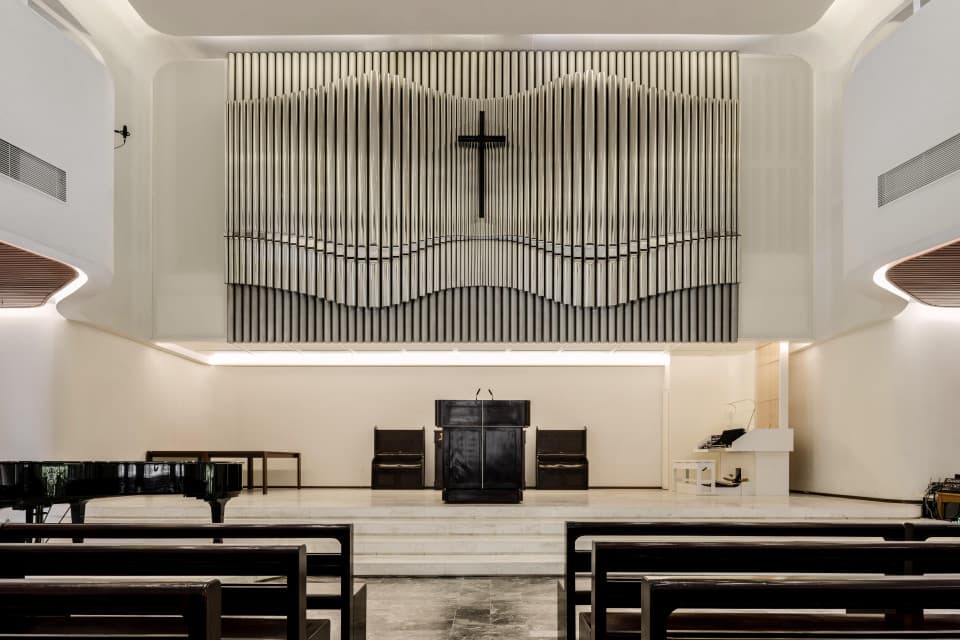
Cathedral organs
Numerous cathedrals around the world house Rieger organs. Here we attach great importance to the following: firstly, that our instruments must provide the highest musical quality for significant liturgical celebrations in the Episcopal Church of the diocese; and secondly, that they must enable concert performances with a maximum of variety.
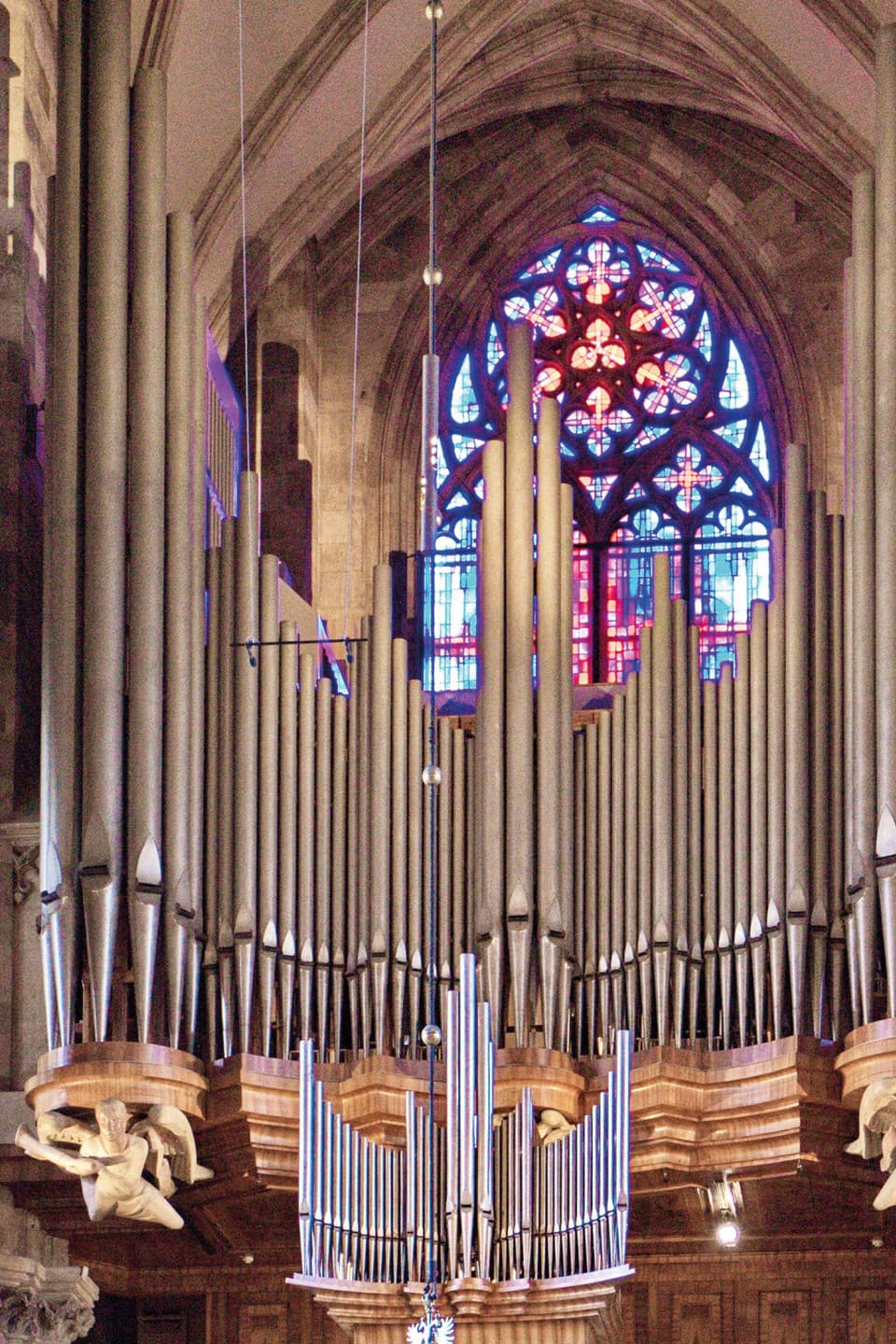
Vienna (AT) St. Stephen's Cathedral, Giant Organ (134/V)
Concert hall organs
When designing and implementing concert hall organs, we ensure that our instruments can fulfil varied tasks, including, in particular, collaboration with orchestras of different sizes, as well as performing with choirs and/or wind instruments.
In addition, our organs are predestined for organ chamber music, as well as the solo organ literature from all eras, especially contemporary music.
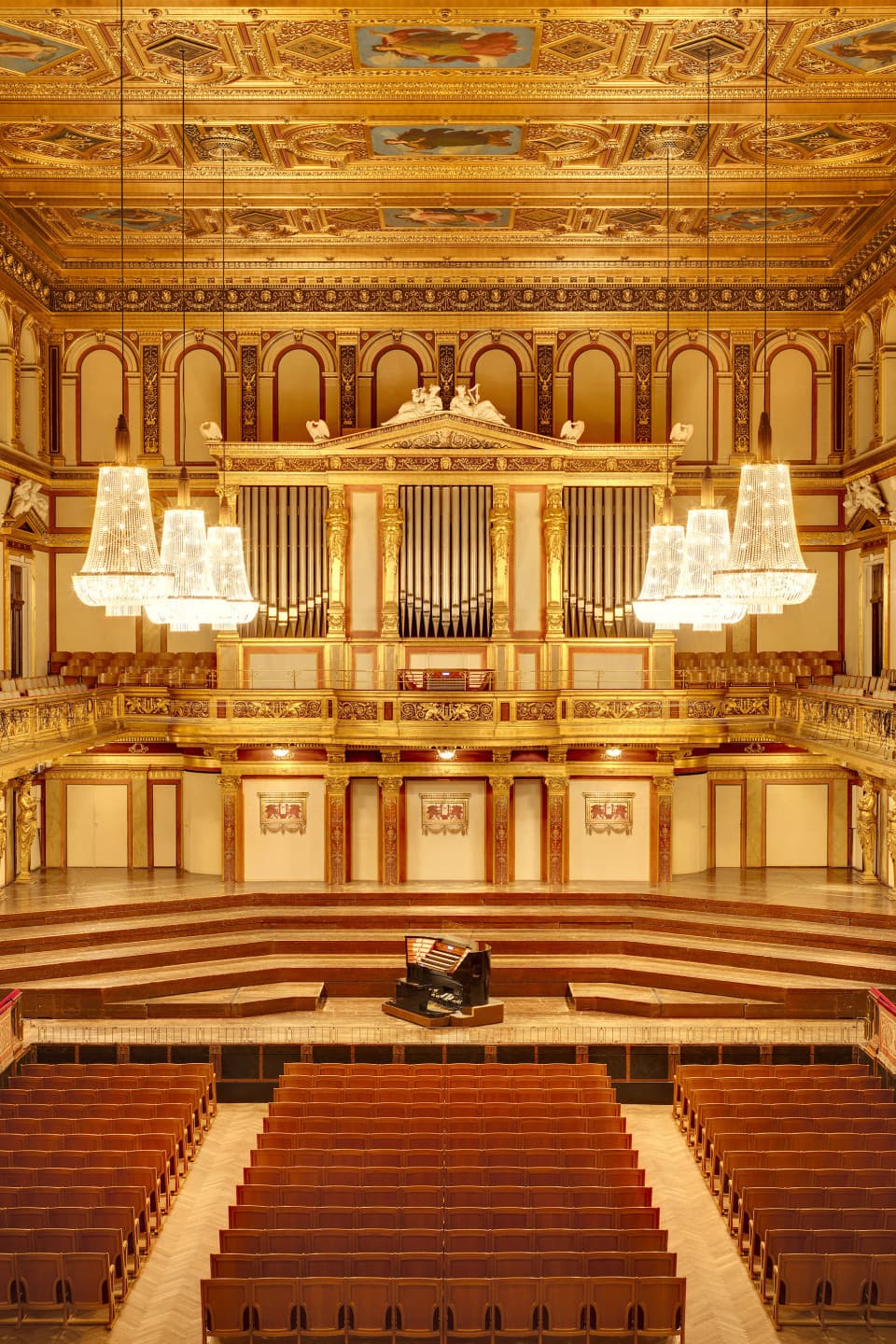
Vienna Musikverein (A) above; Philharmonie Paris (F) right; below: Helsinki Music Centre (FIN), Grand Theatre Nantong (CHN)
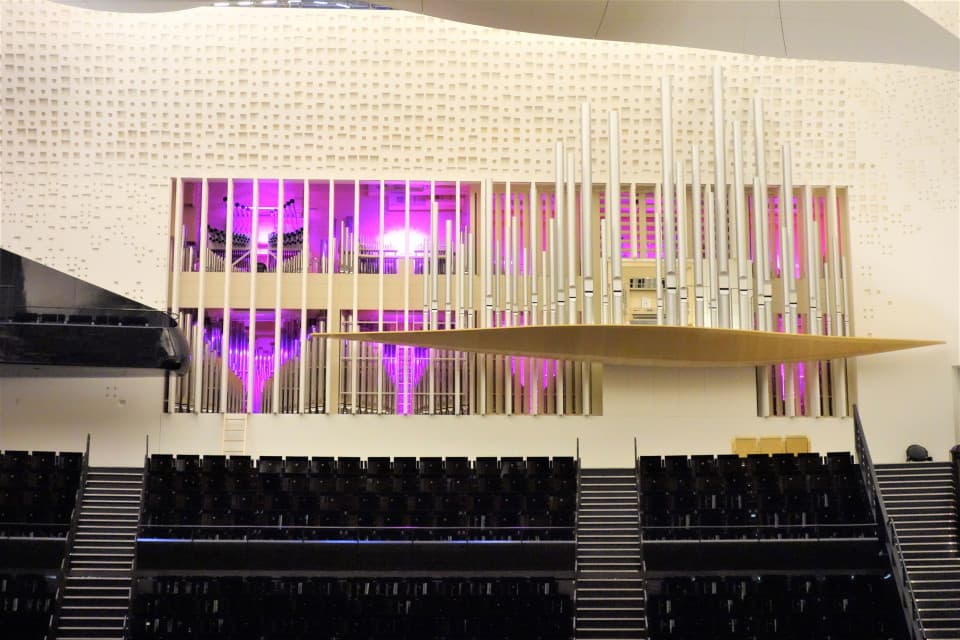
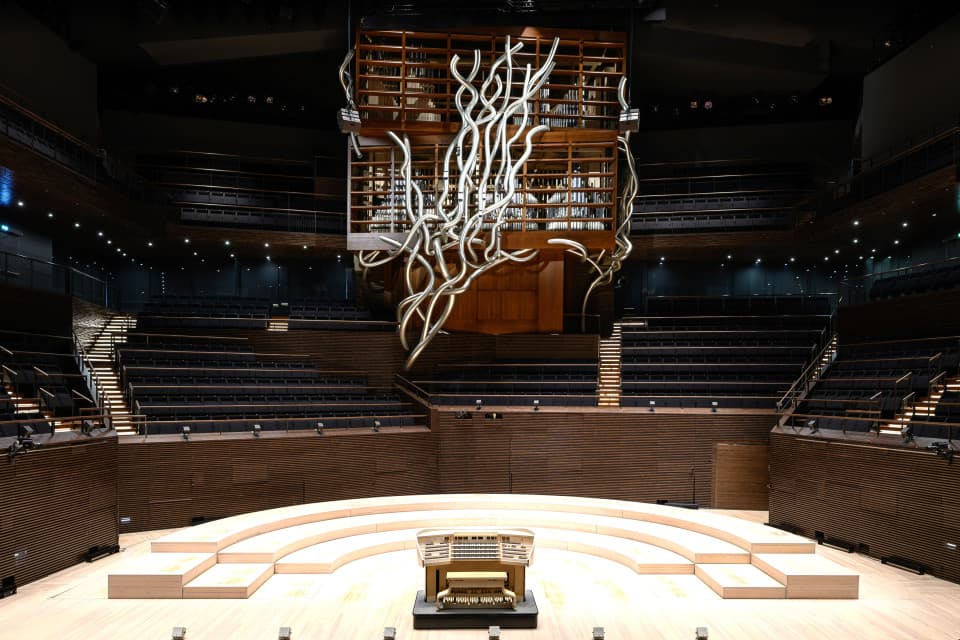
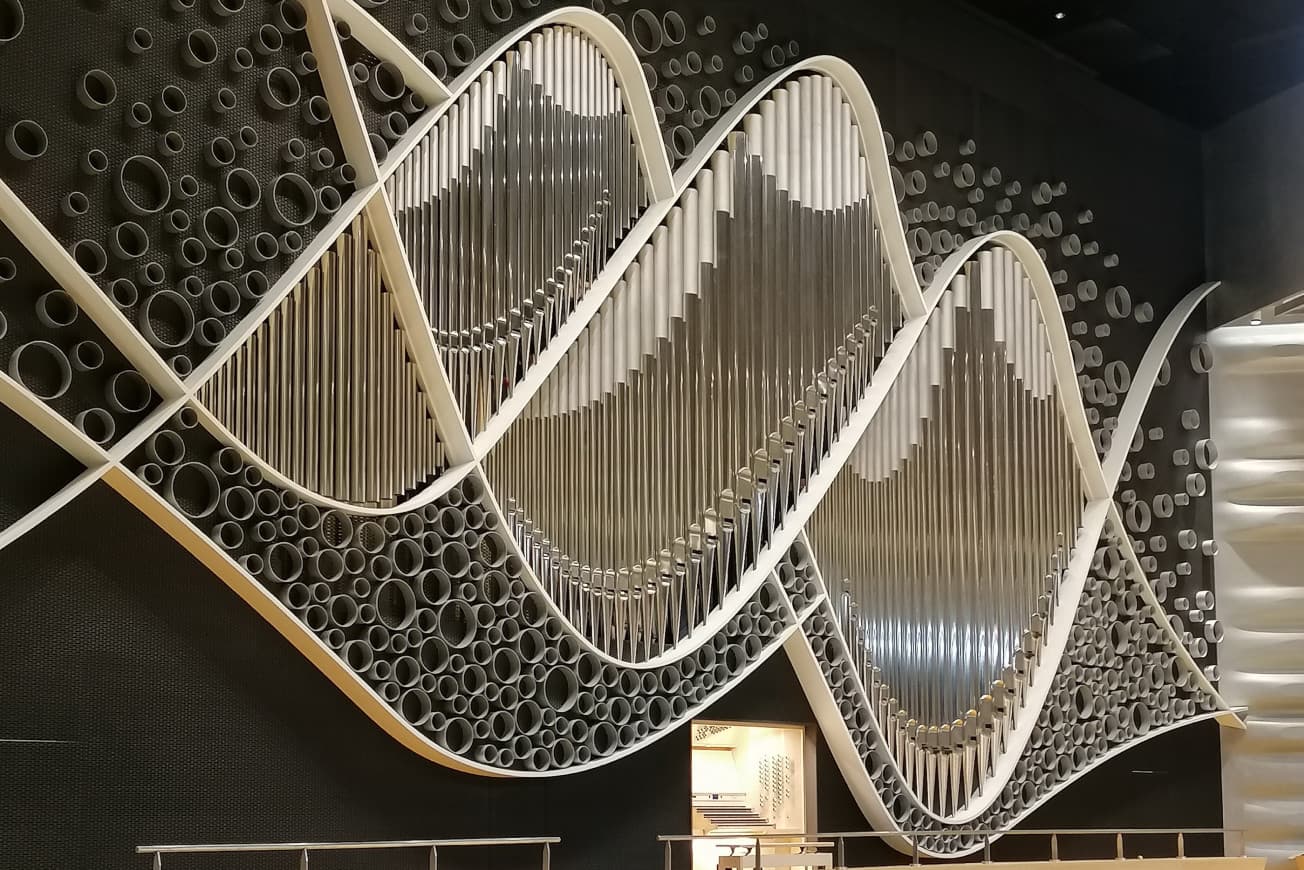
Teaching organs
Young organists appreciate being taught on Rieger organs, because our instruments offer them the opportunity to learn the richest possible range of styles. Our teaching organs are suitable for improvising and playing a wide variety of organ works.
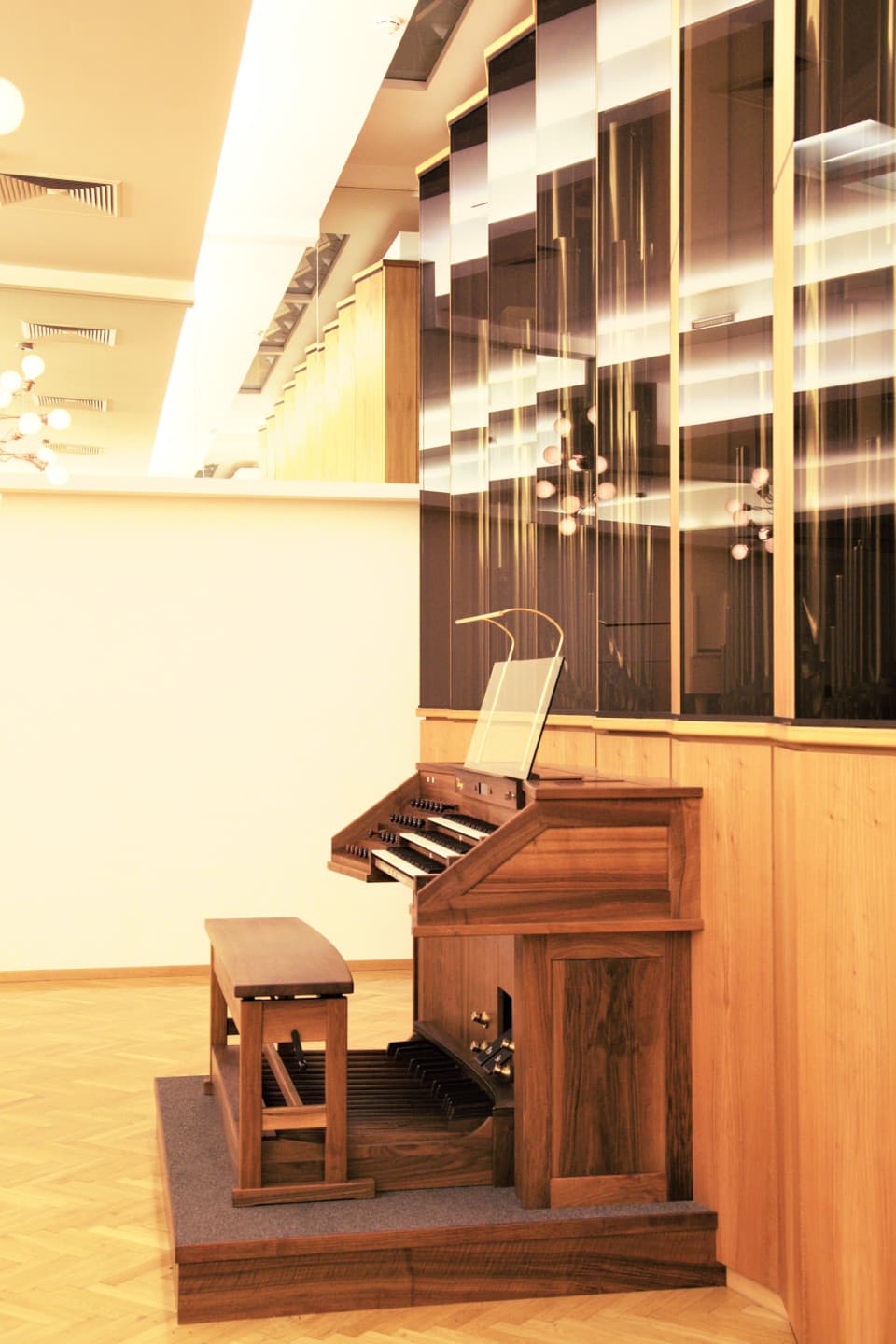
Anton-Heiller-Saal Vienna (AT)
Small organs
By building small organs, we serve a market segment with instruments that can be used in a variety of ways. Rieger small organs are suitable, among other things, as teaching instruments in schools as well as for small churches or concert halls - or at home.
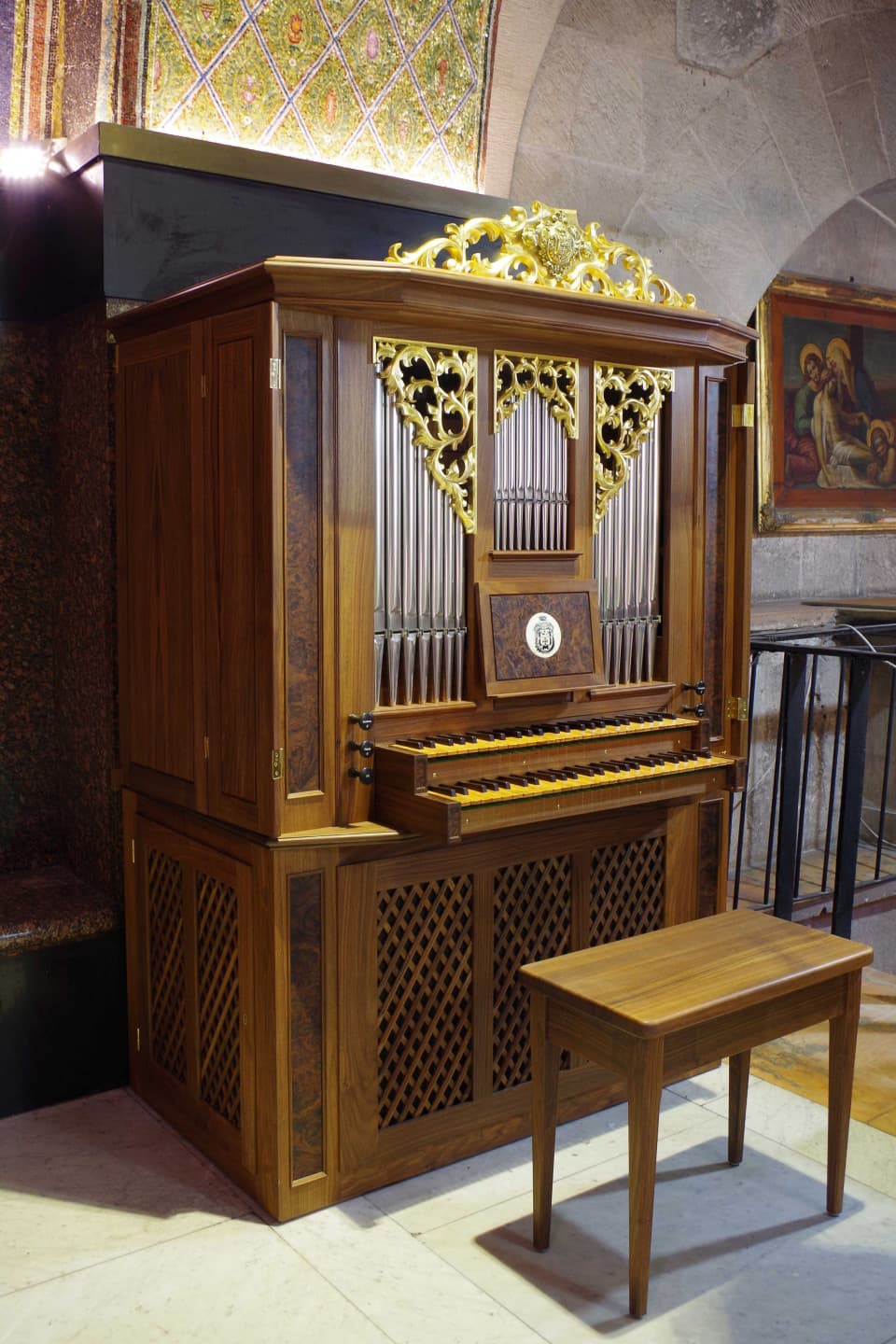
Holy Sepulchre Church Golgota (IL)
Instruments
Cathedral of St. Martin, Mainz (DE)
In August 2022, the new main organ in the east choir of the thousand-year-old Mainz Cathedral of St. Martin was inaugurated. With its 95 stops on 4 manuals and pedals, this organ is one of the highlights in Rieger's history. Despite its visual reticence – in deference to the venerable architecture – the organ develops an enormous presence throughout the vast church. The richness of colour is based on Aristide Cavaillé-Coll's third era, but was expanded to include several German-Romantic registers; consider, for example, the seven-fold choir of violas, gambas and violins in the Orchestral division.
While the organ was being built, the Bishop of Mainz, Dr. Peter Kohlgraf, personally visited the organ building workshop in Schwarzach to listen to the first sounds. His enthusiasm led to his playing pieces for four hands, together with cathedral organist, Prof. Daniel Beckmann, in the opening concert.
Rieger would not be Rieger if another innovation in organ construction technology had not been incorporated into such an important organ - this time an innovation from the in-house electronics development department: the organist can use the "audience position" function at the console to determine where in the cathedral the large Rieger East Choir Organ and the smaller Marian Organ (Orgelbau Goll) can be heard precisely together, without any delay despite the great spatial distance.
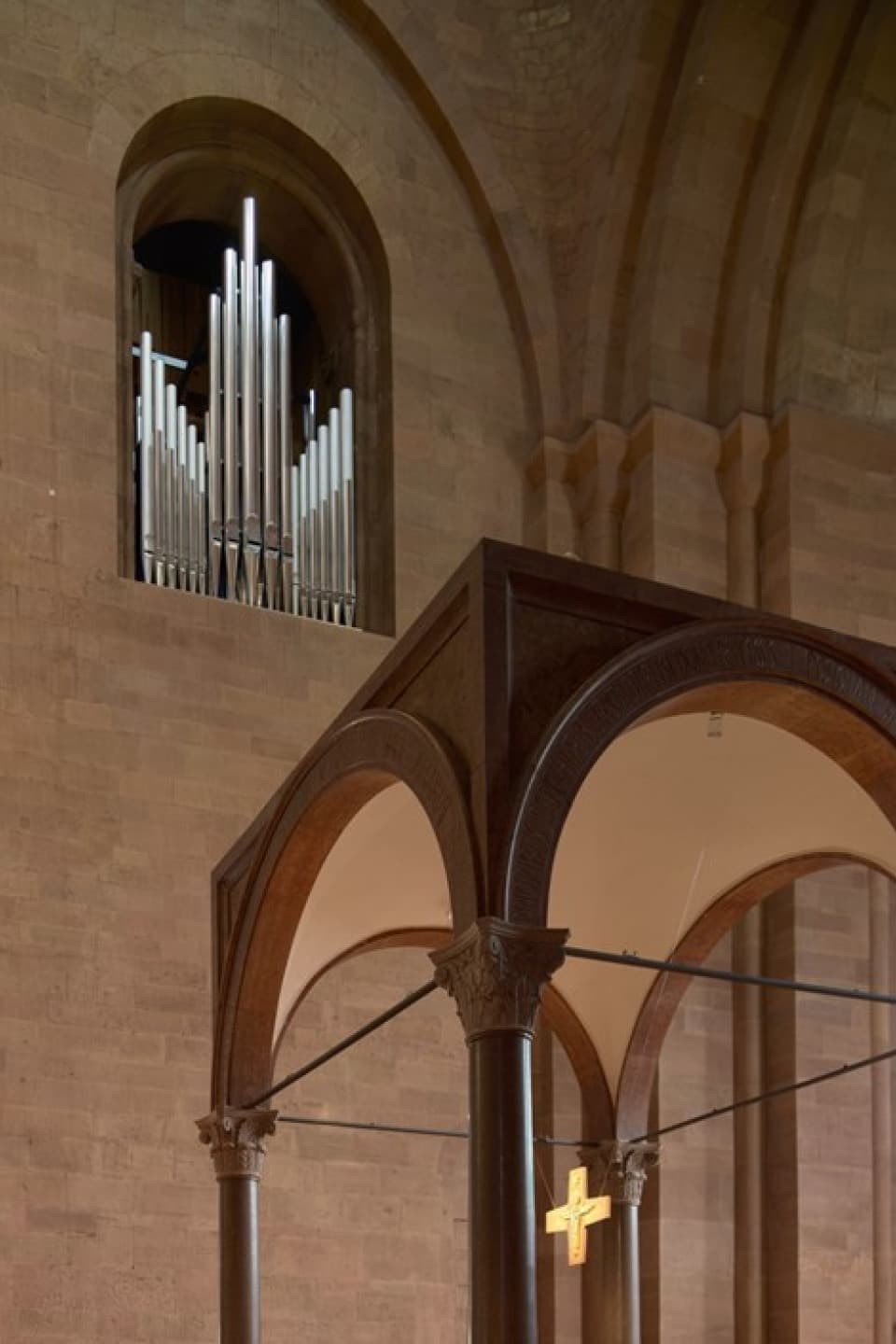
St. Mary's Church, Krakow (PL)
St. Mary's Church is one of the most important churches in Poland. The 14th-century brick church in the middle of Krakow's Old Town is rich in many historical works of art, including the famous main altarpiece by Veit Stoss, created between 1477 and 1489.
Rieger initially built the choir organ (14/II/P) in 2018 using the historic baroque case, so that all liturgical music can be performed in front of the Veit Stoss Altar. The choir organ has its own console, but can also be played from the console of the main organ.
In 2021, Rieger Orgelbau completed the new main organ with 62 stops (IV/P). The existing historical organ case was re-used, even though its original form is much smaller than the present case. Specialists from our workshop integrated the old case into the centre of the new facade to form the middle section of the new organ, and expanded the facade on either side to include two pedal towers. The entire case was then very elaborately gilded with gold leaf by art restorers in Poland.
The organ was consecrated in a festive service in May 2022.
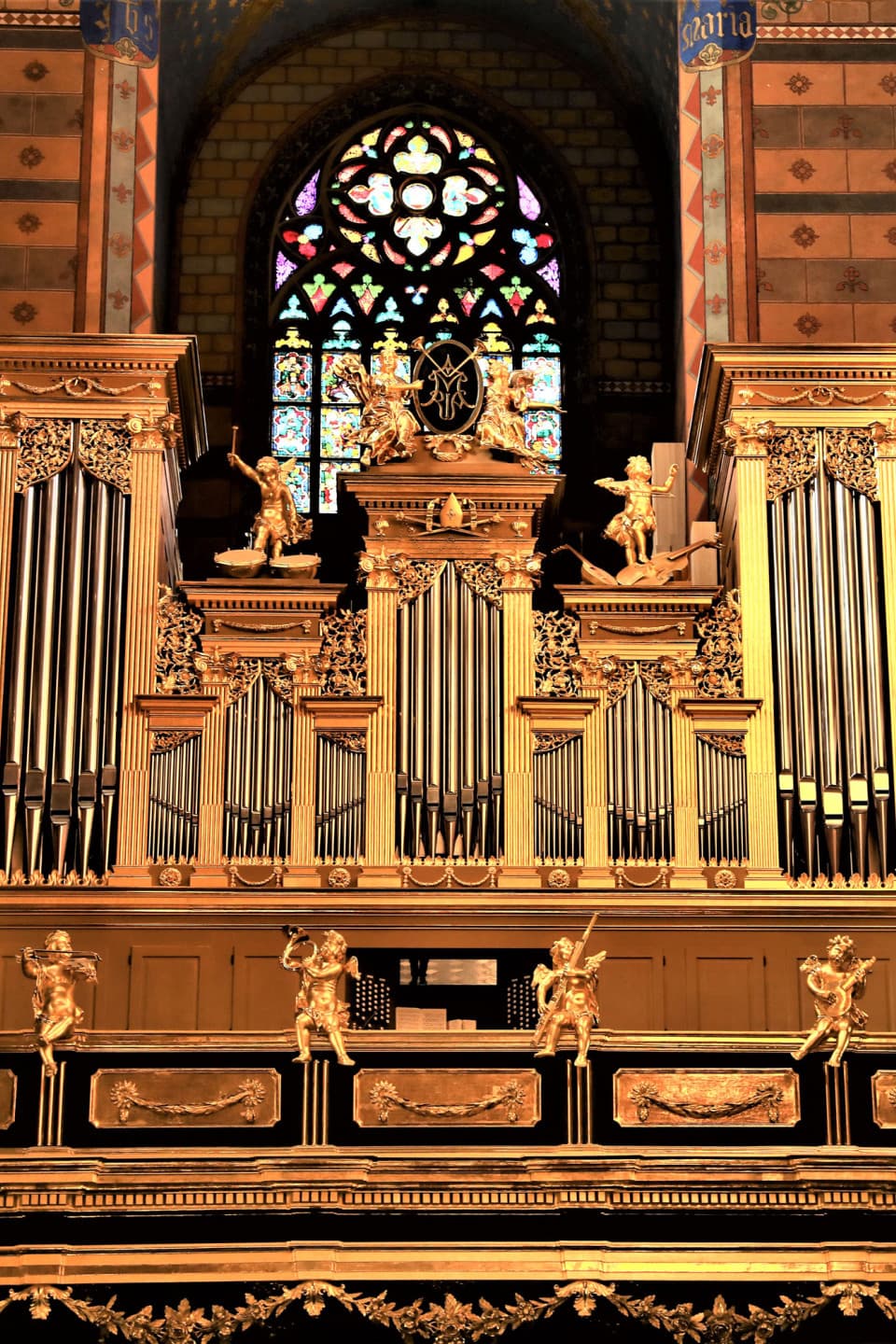
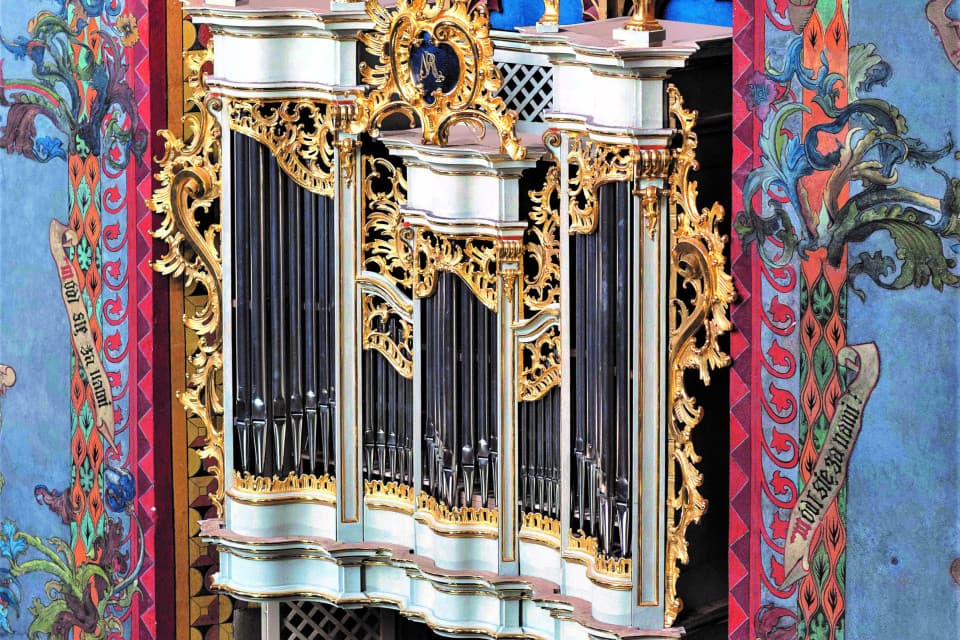
Konserthus Gothenburg (SE)
The new organ for the Konserthus in Gothenburg has 112 stops on 4 manuals and pedals. At the client's request, it was stylistically based on Aristide Cavaillé-Coll's third era. To increase the variety of colours, we added an orchestral division without compromising the French tonal concept.
Special tonal features include two original Skinner stops that were integrated into the tonal scheme, and an additional 32' pedal stop, which is located under the floor of the auditorium’s stalls. A large general swell makes the organ particularly flexible, especially when playing with ensembles.
Several technical innovations were also incorporated in the organ. It has proportional key and stop actions, whereby inter alia any selected position of the draw-stops can be saved in the combination capture system and recalled. In addition, the height of the mechanical console is adjustable and the console playable at any height position.
The new organ for Gothenburg’s Konserthus was ceremoniously inaugurated on 15 October 2021, in the presence of the Swedish royal family.
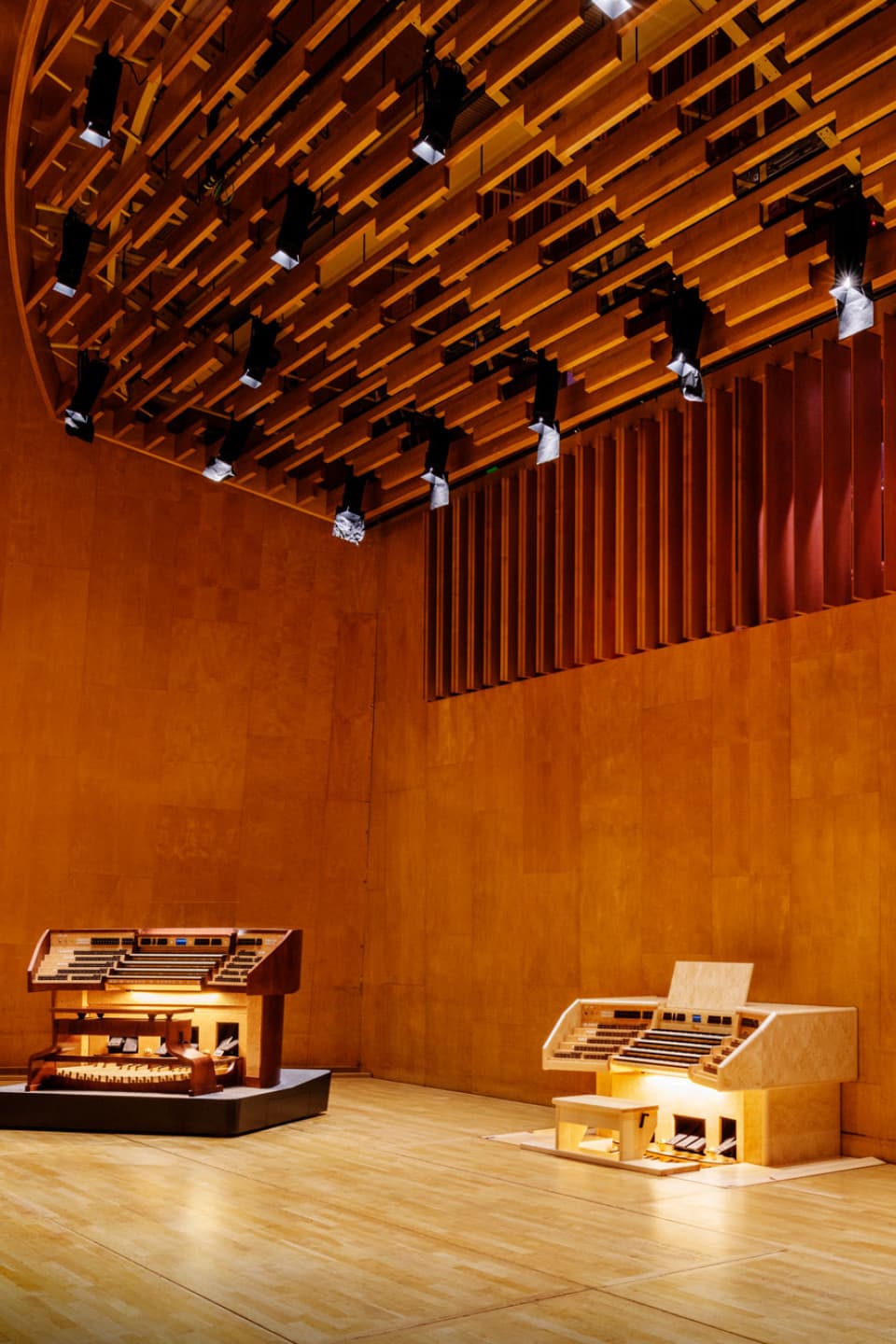
Responsible persons
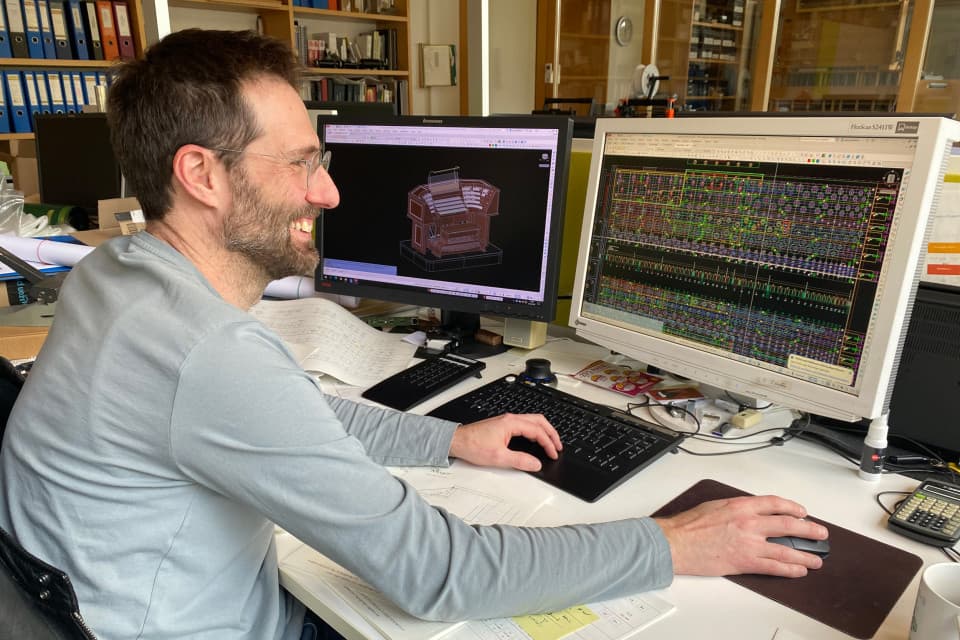
Georg Pfeifer
Management - Deputy CEO, technical design
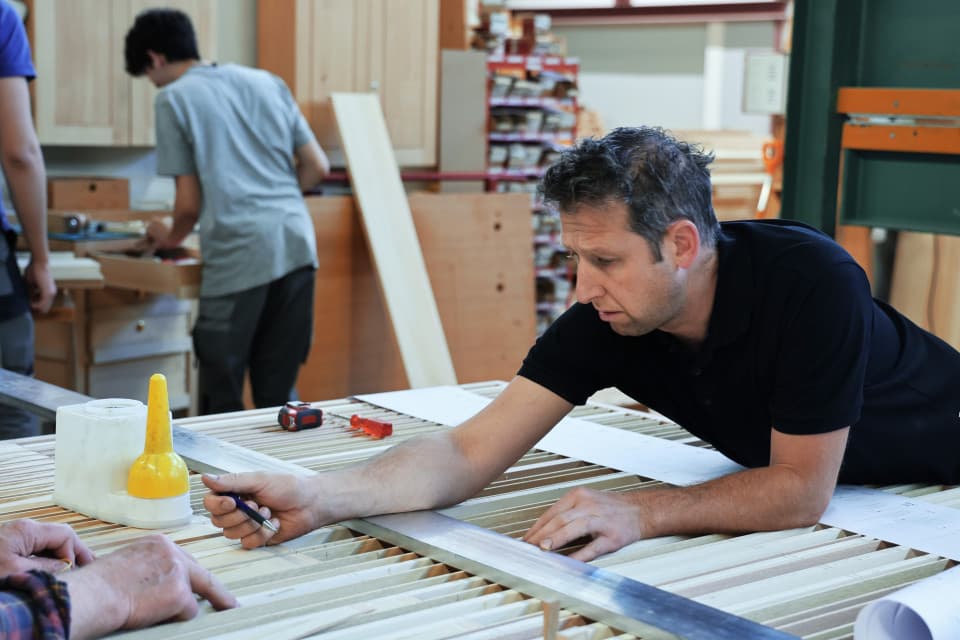
Martin Pfanner
Workshop management, organ building




